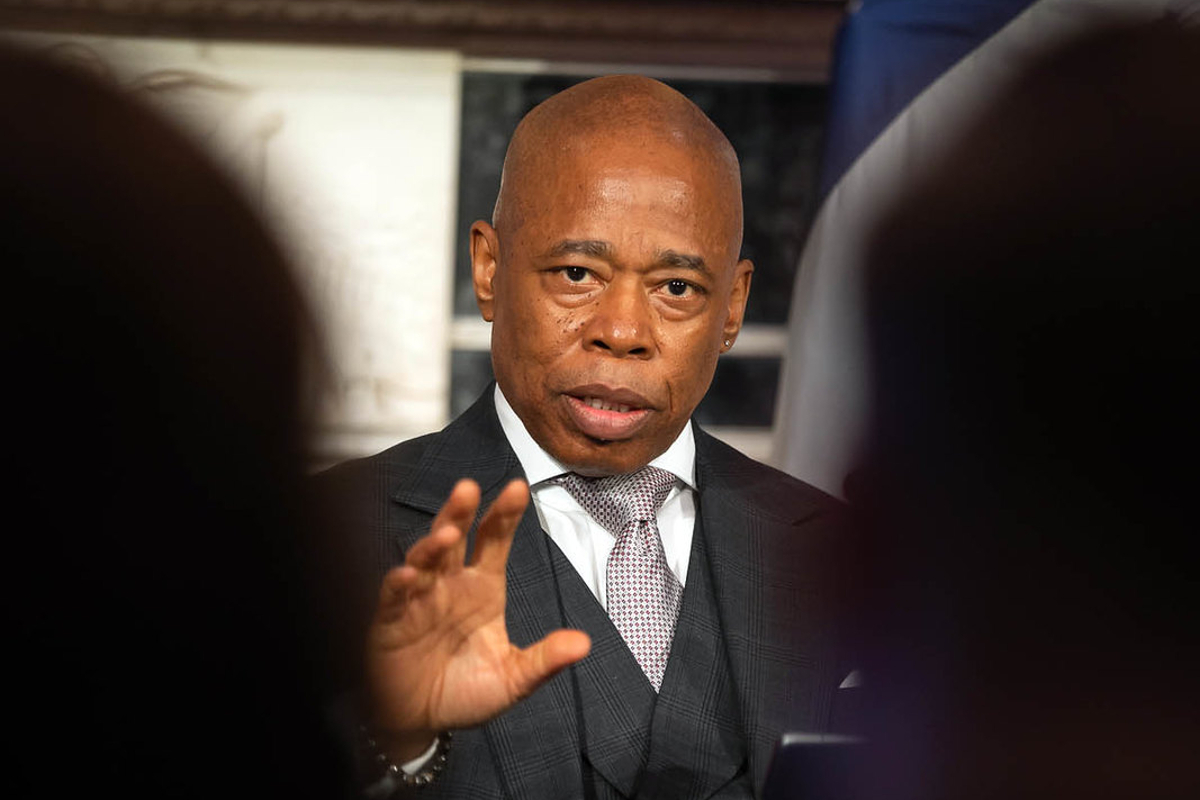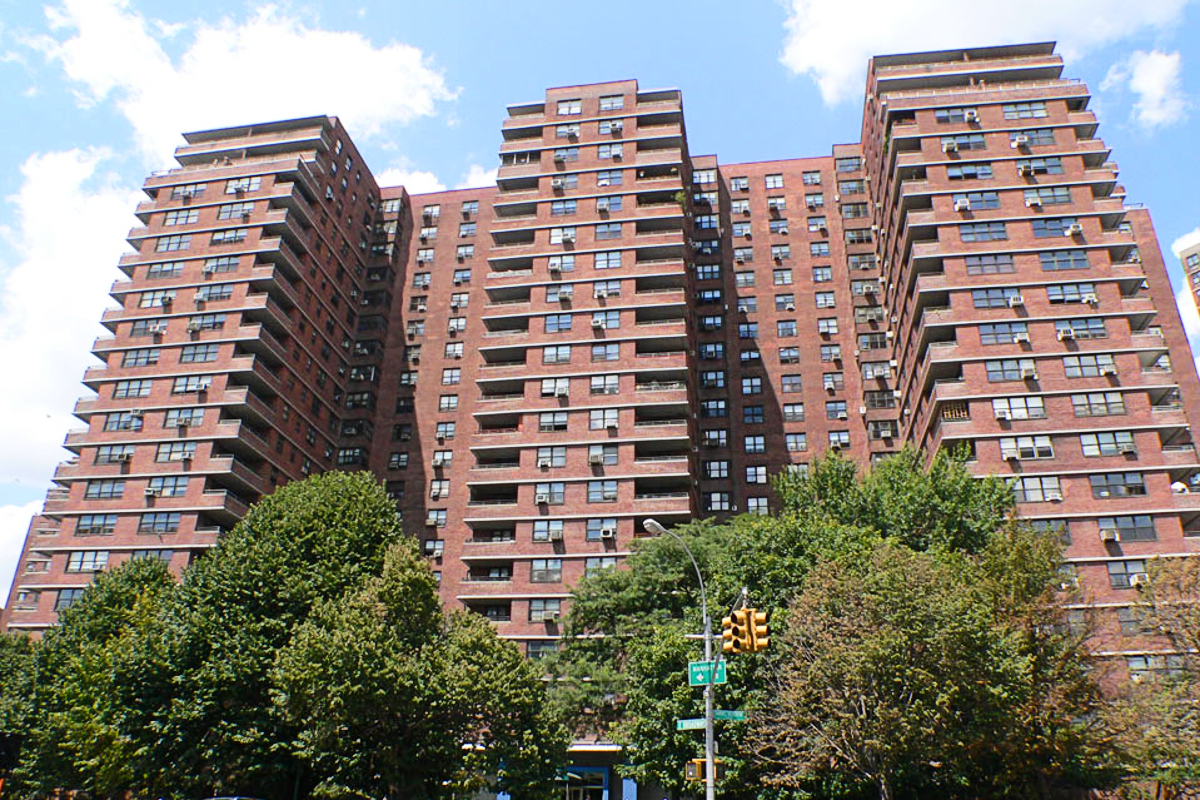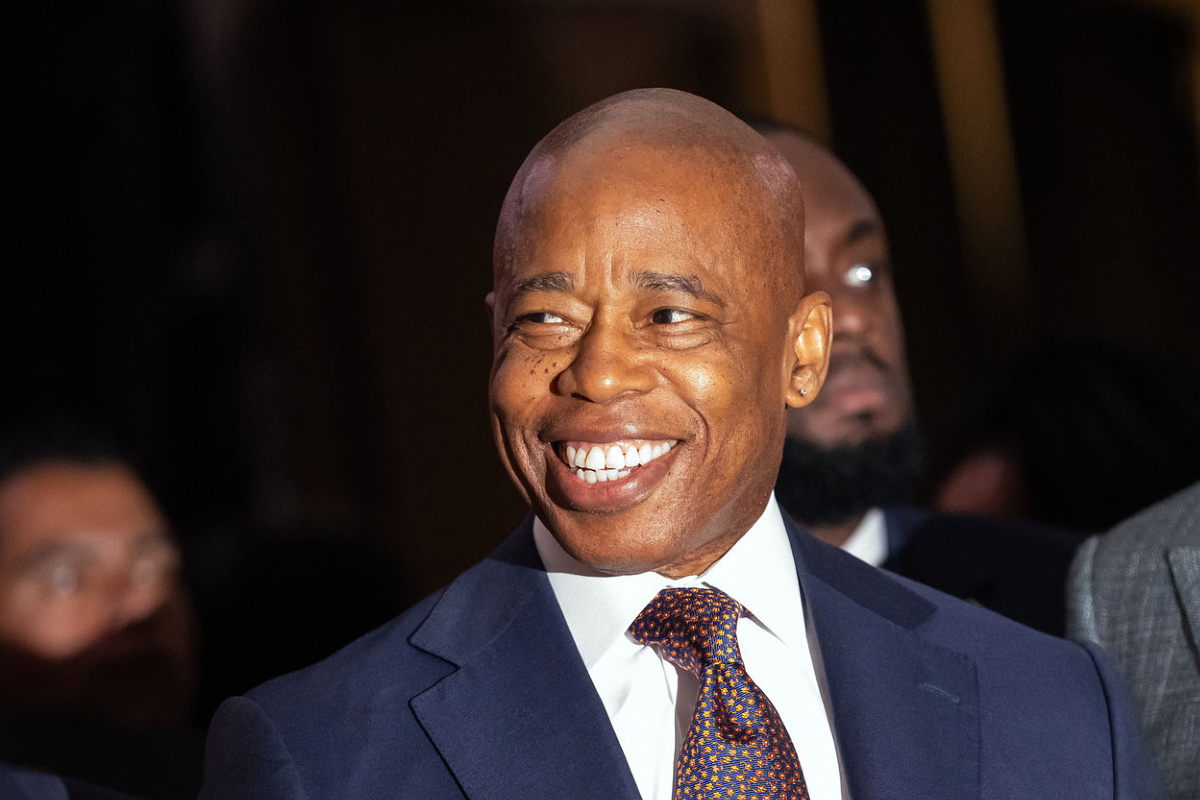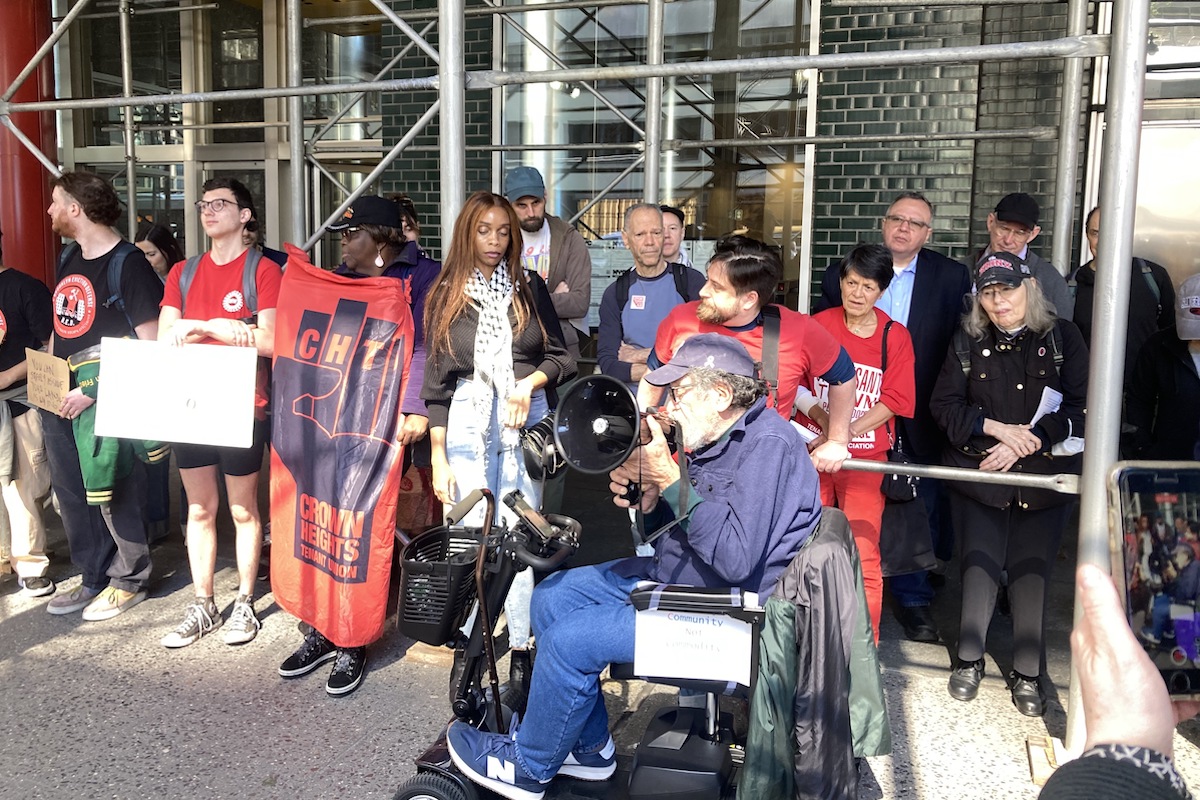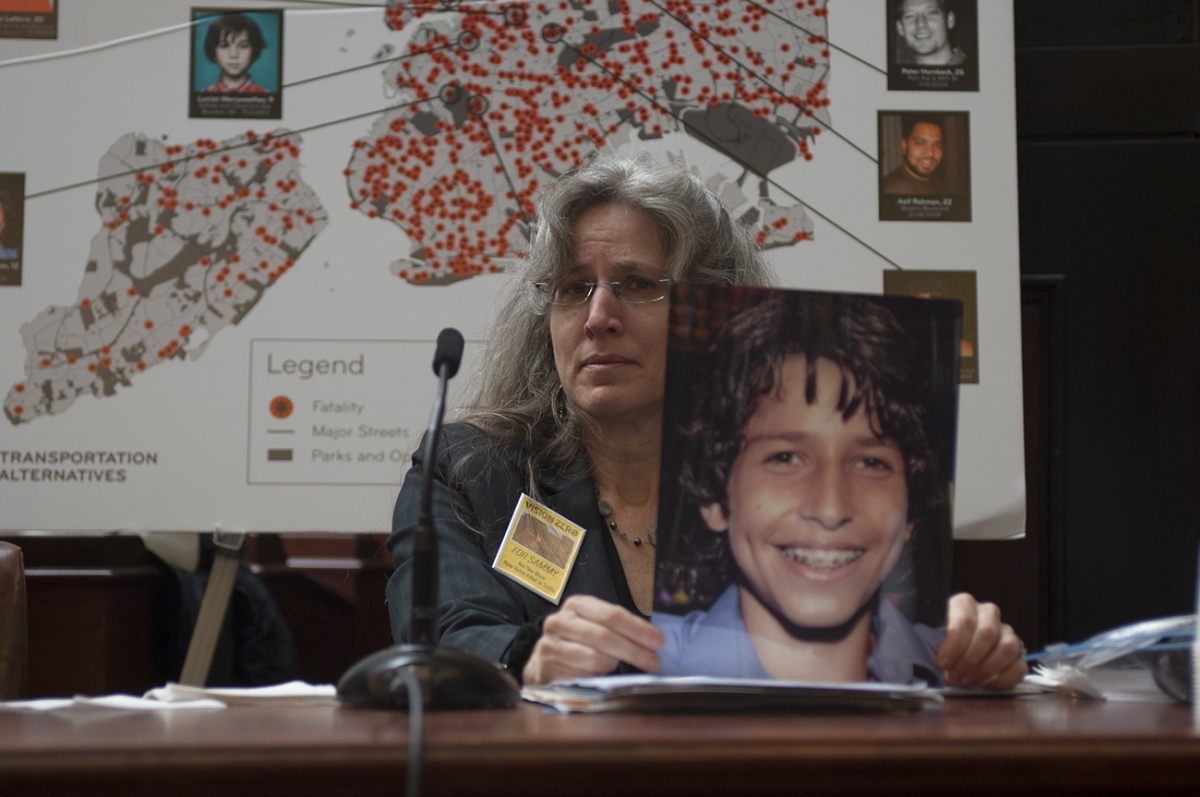Patricia Rodney walked into the 62nd Precinct in Dyker Heights on December 2, 2020 because she had lost her glucose monitor. Rodney knew how important the instrument was to her survival. A diabetic, she had been hospitalized multiple times for complications related to her diabetes, and used the device to check her blood sugar levels many times a day.
“The insurance company said, the only way you will get a replacement is to get this report from the police department,” the 61-year-old grandmother of three recalled. Rodney, who serves food in a school cafeteria, had never had much cause to have interactions with the police, but she had gone down to the precinct a few days earlier to lodge her lost-property report. To her dismay, the officer who took her information told her he couldn’t give her the papers she needed immediately; she’d have to come back to the station house in a few days to pick them up. Rodney would have to wait a little longer for her medical device.
But when Rodney returned on December 2, a new officer was behind the desk, and she told Rodney that she couldn’t get her police report. The precinct doesn’t issue stolen property reports, the officer said. To get one of those, Rodney would have to go to NYPD headquarters at One Police Plaza in Manhattan.
Rodney was at the end of her rope: She’d already been told she could get the report here. Now she was getting the runaround. She dug in, telling the officer she’d been told to come back and get the report, and she wasn’t leaving the stationhouse until she got it.
The account up until now is Rodney’s, as told in an interview with Hell Gate and in a federal civil complaint. What happened next is documented in the body-worn-camera footage of two officers on duty at the 62nd Precinct that night. When the footage picks up, Rodney is in the vestibule of the precinct house, surrounded by police. When the sound on the video kicks in (NYPD body cameras only begin recording sound when activated, but append the previous 60 seconds of visuals from the camera’s buffer memory), an officer is warning Rodney that “Body cameras are now on.”
“This is my camera,” Rodney replies, holding her cell phone. “I’m allowed to film.”
Rodney wasn’t actually filming, she told Hell Gate. “But they were getting very hostile, and they were telling me that they were filming me, so I held my phone up and said, ‘Okay, I’m filming you.’”
This appears to have been too much for the police surrounding Rodney in the vestibule. As luck would have it, she was standing directly in front of a sign that read “Members of the public are prohibited from audio/video recording or photography inside the facility.”
“We’re asking you to leave, you’re not leaving, and you’re not allowed to record,” an officer says in the video. “Turn around.” With that, half a dozen cops close in around Rodney, and in short order, she is on the ground, screaming, as officers twist her arms.
“It felt like they were breaking my arm, Rodney said. “And yes, it turns out they did.” A medical report confirms that Rodney suffered a fractured elbow.
“I’m not playing with you!” the officer bellows as he works to get Rodney into handcuffs and leg shackles.
“I’m a diabetic,” Rodney sobs. “I just need a piece of paper.”
“Now you’re going to jail,” the officer replies. As Rodney is brought to her feet and frog-marched out of the vestibule and into the precinct house, the officer, who, like other police surrounding Rodney, is not wearing a mask himself, grabs her mask from her mouth and pulls it up over her eyes so she can’t see. “Put your mask up,” he says. “All you had to do was cooperate. You did this to yourself.”
The police took Rodney to a hospital to treat the injuries she suffered during her arrest, leaving her handcuffed throughout. Then they brought her back to the precinct house for several hours before sending her on to Brooklyn Central Booking, where she was charged, based on a sworn statement from an NYPD officer, with resisting arrest, obstructing governmental administration, disorderly conduct, and criminal trespass.
Rodney was arraigned before a judge, where prosecutors offered her an adjournment in contemplation of dismissal—if she stayed out of trouble, all the charges would be dropped. Rodney took the deal, and the charges were dismissed.
Rodney’s experience yielded disturbing video and a concerning narrative, but the lawsuit she filed afterwards also raises important questions about the right of New Yorkers to film the police.
In 2020, the City Council adopted the Right to Record Act, which codifies New Yorker’s entitlement to film police in the course of their duties. “A person may record police activities,” the law declares, so long as the act of recording doesn’t physically interfere with police operations.
But there is city ordinance enacted by City Council, and then there is NYPD policy, set by police leadership. The two do not match up.
In 2018, the NYPD instituted its policy directing officers to arrest people who won’t stop recording inside of precinct houses. The policy was put into place after a man filmed himself taunting officers inside the 28th precinct house in Harlem and posted the video to Instagram. The NYPD doesn’t appear to have made any effort to square this policy with the city ordinance.
Rodney’s lawsuit also argues that the NYPD policy violates the First Amendment because it fails to distinguish a specific time, place, and manner in which otherwise protected activities can be reasonably restricted. As Rodney’s case showed, the policy isn’t just being used to prevent people from recording secret police information behind the desk (a behavior that would already be arrestable without the policy), nor is it narrowly targeted to prevent disruptive behavior—Rodney’s suspected filming does not appear to have been disruptive.
By extending its recording ban not only to all of the publicly accessible parts of the precinct house, but even to the precinct vestibule, Rodney’s suit contends, all the NYPD policy accomplishes is to restrict “recording of things that can freely be seen by members of the public.”
While several other federal circuits have established that the right to record police is clearly established, and that officers can’t claim they weren’t aware of it when claiming qualified immunity from lawsuits, the Second Circuit, which contains New York, has not addressed the question. If it does take it up, it will likely be guided by the fact that, following a lawsuit brought by the Legal Aid Society of New York, the NYPD was compelled to adopt training and policies instructing officers that the public have the right to record them in the course of their official duties and can’t be arrested for doing so. Mayor Eric Adams made headlines in March when he suggested that members of the public filming of the police had gotten “out of control.”
Asked about Rodney’s arrest, an NYPD spokesperson acknowledged the right to record police, but notes that
“the individual must have a legal right to be present at a particular location in order to have the right to record police activity there. Due to the sensitive nature of what occurs inside police stationhouses, law enforcement agencies can limit expressive activities within the confines of the stationhouse in order to uphold the sanctity of investigations, protect witnesses, and allow officers to perform essential functions without interference.”
Remy Green, Rodney’s lawyer, says there are a few problems with this position. “One is, even if one were to decide that there is good reason to restrict public recording in the vestibule of a precinct house, that’s not what city ordinance says. If the NYPD doesn’t like the law, it can seek to have it changed. What it can’t do is just make its own rules in violation of the law. That’s not how our legal system works.”
But the rule is also bad on its substance, Green argues. “This policy creates an area where the public is regularly interacting with police, like my client had to, to get something that she needed for her insurance. And she is at a disadvantage where the reason she started saying she was recording this because they were giving her conflicting information, and she needed some documentation of that. And good God, she should be allowed to.”
The City of New York’s answer to Rodney’s complaint is due on Friday.
For Rodney, the aftershocks of the night she went to get her missing property report live on. “This affected me physically—my arm was broken, my back hurts—but it also hurt me emotionally,” Rodney said. “Just going outside, going to work, seeing police all around, my somatic reaction has not gone away. Being treated like that just because I needed a piece of paper that was important to my health, I felt they should be held accountable for what they did.”

